Ellsberg’s book ‘Doomsday Machine’ and Assange’s Wikileaks reveal the fabrications that underpin U.S. militarism. Paul Jay on the “By George” podcast (pt 2/3).
TRANSCRIPT
George A. Clark
Hello, hi, how are you? Welcome on in to another Podcast By George. I’m happy to be able to get him back. It’s Paul Jay. He’s coming on the Podcast By George Liveline. We’re doing a recording here to get this straight. Get it right. We had some technical difficulties on the internet in the previous show, but I’m sure this is going to be good.
And you’re going to like this because this guy is on top of it. He’s all over it. He’s an authority. And for folks that may not know, Paul Jay is a journalist and filmmaker. He’s the Founder and Host of theAnalysis.news, a video and audio current affairs interview and commentary show and website.
Paul’s films have won numerous awards at major festivals around the world. He’s the past Chair of the Documentary Organization of Canada and was the founding Chair of the Hot Docs Canadian International Documentary Festival. And of course, you know me, I’m a hockey guy, so I got to love Canadians, folks. Jay was the co-creator and co-executive producer of Face Off and Counter Spin up there. A nightly primetime debate program that ran for ten years on CBC News World. And of course, he was the founder of the Real News Network based in Baltimore. I think that’s where he spends most of his time now. And he’s currently working on —
Paul Jay
No, Toronto.
George A. Clark
Oh, you’re in Toronto. Okay, great. He’s currently working on a documentary series with Daniel Ellsberg based on Ellsberg’s book, The Doomsday Machine. He’s doing a documentary, a movie on a guy that I consider to be an American legend. I mean, a real hero in many ways, Daniel Ellsberg. And it’s all about his work with something called the Doomsday Machine. And this is a long, laborious work in progress that Paul’s involved in. And Paul, if could you just update us on how the docs going.
Paul Jay
We’re still in the early stages. I’ve done about maybe 20 days of interviewing with Dan. This is based on his book The Doomsday Machine: Confessions of a Nuclear War Planner. And as I guess most of your listeners or viewers know, Dan released the Pentagon Papers. But before, he worked for the Pentagon in Vietnam, where he was helping develop the plans for the war in Vietnam and had access to all these secret papers that he released in order to help stop the war. Before that, he worked for RAND Corporation as a nuclear war planner.
Literally, the RAND Corporation was contracted by mostly the Air Force, and Dan was part of the team that advised them on how to wage and when to wage nuclear war and issues connected to it. His book, and maybe even more so, this documentary series, is about the transformation of Ellsberg from a very committed cold warrior who really did believe the Soviet Union was another type of Hitlerite country, meaning totalitarian regime tried to seek global domination. And he was continuing that fight. He’d been a marine himself, and then he starts to discover that the Cold War is based on several, maybe more, but several big lies.
It starts to transform him from a very passionate cold warrior who leads him to what happened in Vietnam, where he releases the Pentagon Papers and then becomes an anti-war activist and a very big critic of U.S. foreign policy war policy, particularly on nuclear weapons issues. He believes, and he’s certainly not the only one, it’s as dangerous now. The possibility of nuclear war is as dangerous now as it’s ever been. And there are a few key moments, like the Cuban Missile Crisis, 1958 in Taiwan with China, 1983 the false reading of incoming flights by the Soviets, who one guy decides not to tell the Soviet President. Otherwise, we probably wouldn’t be here talking.
But the conflict both with Russia and Ukraine and with China over Taiwan, Ellsberg thinks that we’re heading into as dangerous territory as we have ever been.
George A. Clark
I want you to talk just briefly about the parallels between Daniel Ellsberg and the situation with Julian Assange. Assange is rotting in that jail in London. And Ellsberg, as I understand it, they were going to jail him. I mean, he was headed not in a good place, but some kind of a quirk in the law or something allowed him to escape because he was going to be imprisoned.
And to clarify again for the viewers, Ellsberg was not a publisher. He was more of a leaker. He was the guy that had access to these Pentagon Papers because of his work at the RAND Corporation. He brought them to the publishers like the New York Times and the Washington Post. The Pentagon Papers got out there, and it had a lot to do with ending that war, maybe earlier than it would have been.
But they weren’t finished with him. They were going to stick him in prison if they could, right?
Paul Jay
Yeah, what happened is he was charged, I believe, under the Espionage Act, and he definitely did leak. What he did was illegal. His argument was the war was far more illegal. The war in Vietnam was based on a lie. The Gulf of Tonkin incident, that this American ship that was supposedly blown up by the North Vietnamese, that turned out to be another lie.
But they did charge him, and the trial began. In the course of the trial, it was discovered that [Richard] Nixon, President Nixon, had ordered the Plumbers team that was to do Watergate to break into Ellsberg’s psychiatrist office. And when the defence, Ellsberg defence, found out about that and told the judge that this was an abuse of prosecutorial power, the judge agreed and threw the case out. And, in fact, that helped lead to the whole Watergate scandal, which helped lead to the downfall of Nixon. So in that way, the release of the Pentagon Papers ended the war earlier because it eventually brought down Nixon.
George A. Clark
Paul and I could talk forever because I have a tendency to digress. But the connection with Assange, the similarities, the parallels there, Ellsberg has gone on record saying the cases are, I don’t know, maybe virtually identical. I mean, they’re different.
Paul Jay
Well, I would say they’re not identical. And in some ways, the Assange case is a more serious threat to journalism than Dan’s case was. When Dan released the papers, the New York Times, Washington Post initially, the Nixon administration did get injunctions to try to stop them from publishing. But Dan, and the people supporting him, which included Gar Alperovitz— some people may know him— they came up with a smart plan, which is they photocopied something like 15 copies of these hundreds and hundreds of pages —
George A. Clark
A page at a time.
Paul Jay
And gave it to about 14-15 newspapers, and so they would slap an injunction on the Times, and then the Post would publish the other way around, I can’t remember. And if they tried to do an injunction on them, then one of the other papers started to publish, and then another paper started to publish. That was back in the day when newspapers actually would defy the government in this way. I don’t know if that would happen now, especially since 9/11. There’s a lot of changes that have taken place in American newsrooms.
But the prosecution, I would call persecution of Assange, is against a publisher, not a leaker. Chelsea Manning knowingly broke the law and did it because she felt it had to be done. And she was right, and she was willing to pay the price, make the sacrifice. Dan is the same thing. Dan fully expected to go to jail and knew he was doing something illegal, but ending the war in Vietnam was more important. As you say, it was almost a quirk that he didn’t go to jail.
But Assange is not a leaker. Assange is a publisher. And the Obama administration was not going to prosecute Assange because apparently, they said to themselves, if we prosecute Assange, then don’t we have to prosecute the New York Times, the Post, McClatchy, all the papers that actually publish this stuff in association with WikiLeaks. So they didn’t pursue it.
Trump restarted the case against Assange. And as we know now with [Mike] Pompeo, they were even talking about ways to kidnap and assassinate Assange. And Biden has continued the attempt to extradite Assange from England, even though it was his own administration with Obama, that concluded that this would actually be an attack on press freedom more generally, and they’re continuing it anyway.
So in some ways, I think the prosecution of Assange is actually more serious than the prosecution of Ellsberg. Although Ellsberg certainly was willing to make the sacrifice of spending the rest of his life in jail and would have if it wasn’t for the weird set of circumstances.
George A. Clark
Well, as I mentioned at the onset, I mean, Paul’s a real journalist. I mean, he’s a working journalist, and this Assange situation is the biggest threat to modern journalism in our lifetime. So it’s something that we could talk about all during this podcast.
I want to move off of here eventually, but I’m going to bring up on screen the front page of this morning’s New York Times, Paul, and they’ve got front-page coverage of this drone attack on these civilians in Syria.
Now the New York Times is all over that, and I’m looking at that, and I’m thinking, well, what the hell they want you to believe and it’s a big part of it, obviously, that the reason they’re pursuing Assange is for releasing that helicopter attack, that Apache helicopter attack in Baghdad that resulted in the deaths of civilians. And that makes me believe in this house of mirrors that we live in, Paul, that there’s more to them chasing Assange than just that. I think it goes much deeper than that because how the hell can New York Times have this on their front page, and Assange be sitting in a prison in London?
Paul Jay
Well, I’d answer a couple of ways. I think one, Assange didn’t just release Chelsea Manning’s footage of the helicopters killing the people in Iraq. I think a lot of this has to do as well— not that that wasn’t significant, all the Manning stuff, but also the release of Hillary Clinton’s emails. And they started getting the stuff that was getting out; it was starting to really threaten the deep state. I used the word deep state. I know some people say Trump is, and he certainly isn’t. It just means the professional state, which is deep. The professional state deep, and there’s a lot of different intelligence agencies that all operate at the same time.
But what Assange did that’s different than what the Times is doing. He got access through leakers to thousands and thousands of documents, whether it was Chelsea’s or Hillary’s emails, and it started to expose the system of lying that permeates U.S. foreign policy.
The American state, Gore Vidal and others have called it the national security state, which emerged after World War II, and this essentially gets established by [Harry S.] Truman. And to a large extent, it’s something Ellsberg says to do with the nuclear war and the military-industrial complex. To a large extent, it’s based on the need to juice up not just American power but American military spending. And a lot of lies are necessary to juice up the spending.
So, for example, when [John F.] Kennedy ran in 1960, one of his big planks was that there’s a missile gap between the Soviet Union and the United States. And the Stratcom, the American Air Force, was telling the world and telling Kennedy that the Soviet Union had 1,000 ICBMs [Intercontinental Ballistic Missile]and that they were in all likelihood preparing a first strike against the United States. Otherwise, why have 1,000 ICBMs when the United States, at the time, perhaps had maybe 40? Some say it could have been 200, but I think the number normally may have been only 40 or 50. And Kennedy and the Air Force and others, of course, in the companies that were going to manufacture all the ICBMs, were screaming that there has to be this massive push to build ICBMs.
Anyway, to make a long story short, Ellsberg is in the cafeteria at the Pentagon one day sitting with his friend, who says, have you seen the new satellite pictures? They figured out how many ICBMs the Soviet Union had, and he said how many? He says you’re not going to believe it. He says it’s not 1000. It’s four. Four.
The Air Force was counting grain silos and calling them missile silos. It was a total piece of bullshit. But not only did that mean that there was no need to build 1000 ICBMs. It was an incredible opportunity to say to the Soviet Union, well, we know you’ve only got four, so we’ll reduce our numbers and let’s stay under ten each. It’s enough to be a deterrent, but it’s also a manageable amount, so this thing doesn’t spiral out of control.
Well, of course, that isn’t what happened, and this is where Ellsberg makes a confession. He actually recommends to Kennedy letting [Nikita] Khrushchev know through a speech a General is going to give that the Americans have figured out the real number because Khrushchev was bluffing. He was saying there was parity. Maybe the number was 200, and Khrushchev was claiming to have 200. But instead of using this as an opportunity to avoid a nuclear arms race, they let Khrushchev know that they know. And they started to threaten Berlin because it was a fight over East and West Berlin at the time and whether the Americans were going to be able to send their troops into West Berlin.
So one of Khrushchev’s responses is, well, okay, fine. Now, you know, we don’t have ICBMs, Intercontinental ballistic missiles. So you’re right. We don’t have a ton of missiles we can throw at you from here. Whereas you have tons in Europe, you can throw at us, and you’ve got what you have on American soil. So that’s one of the reasons Khrushchev sends nuclear missiles to Cuba.
Now, they’re mostly defensive, but they’re something. The bottom line here is that this lie of the missile gap it’s just one of many lies that support this military-industrial complex and the war policies. Go through the various wars, virtually everyone, including most recently, Iraq, which is an enormous lie about weapons of mass destruction.
Well, what Julian was doing by creating a platform for leakers like Chelsea, a place that could really expose the very heart of the national security state, stuff that they didn’t want to be exposed, at least not with their own documents this way. There’s a big difference between people who kind of know and say they’re insiders, but when you got the documents, it carries more weight. What WikiLeaks was doing was a real threat to this whole systemic lying of the American national security state.
So why are they going after him? When the logic was under the Obama administration, well, if we go after him, that means we have to go after the Times, the Post and whatever? Well, maybe that’s why they’re doing it now. They want the Times, the Post and others to be concerned about working with people like Assange.
George A. Clark
I never considered that angle very much, and that’s the chilling effect that journalists are so worried about. And God, this is. Just listening to Paul; this is why I love his podcast, love his show and his perspective. I mean, he’s a great journalist, but he puts it in a historical perspective like I think no one else does. And that movie is coming out. This is going to be all about Daniel Ellsberg and The Doomsday Machine.
This is not going to be Tom Hanks, and you know, that thing that we saw called The Post or whatever this is going to be real truth. I’m going to be front row and center for that. I just can’t wait for that documentary to come out.
But we’re going to leave it there for right now. We’re going to come back with Paul, and that’ll be in the next episode coming up. And make sure you don’t miss that one because this is great, but this is the end of this particular segment.
END


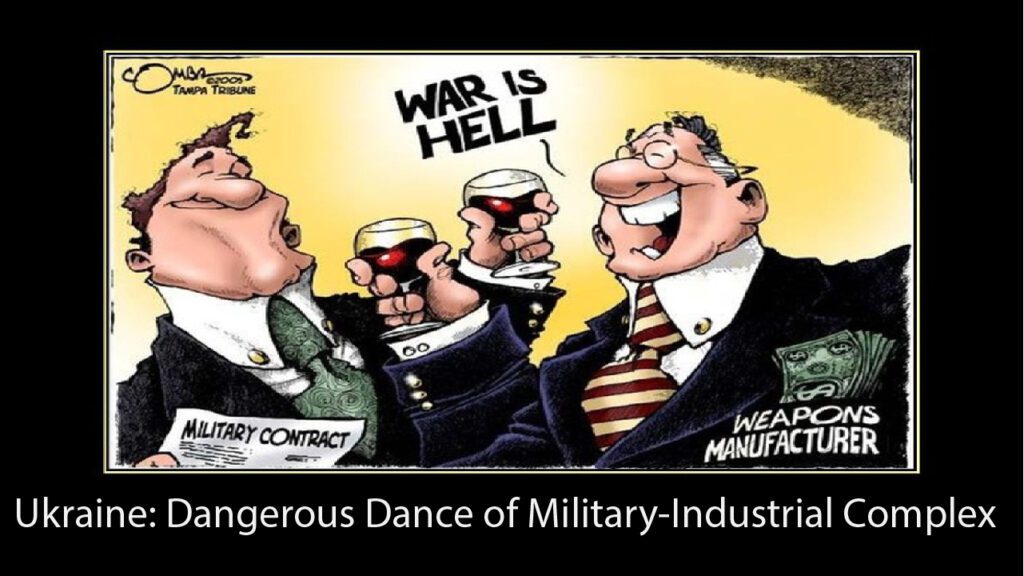

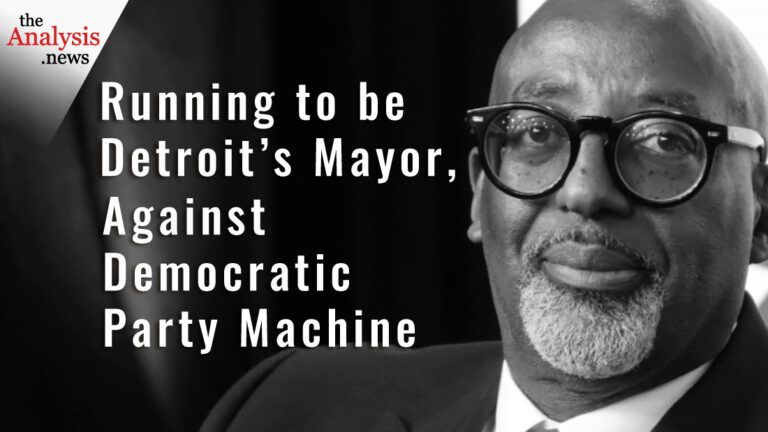
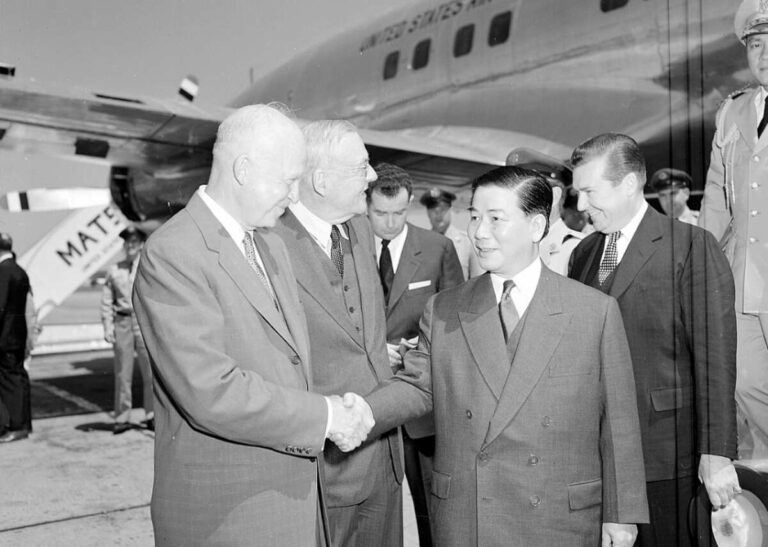
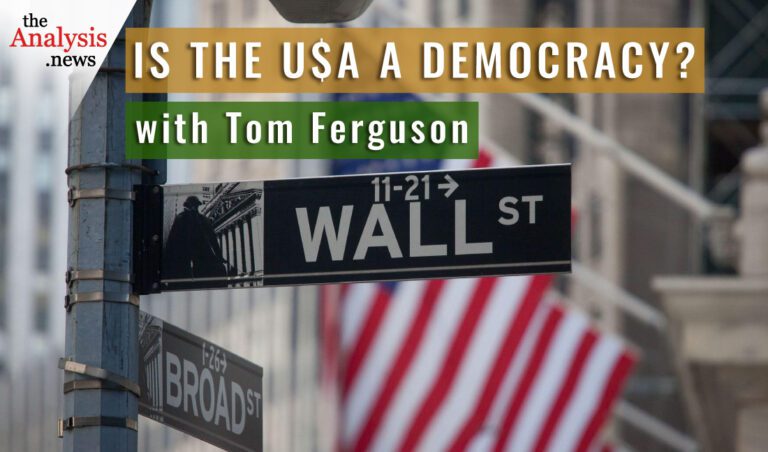

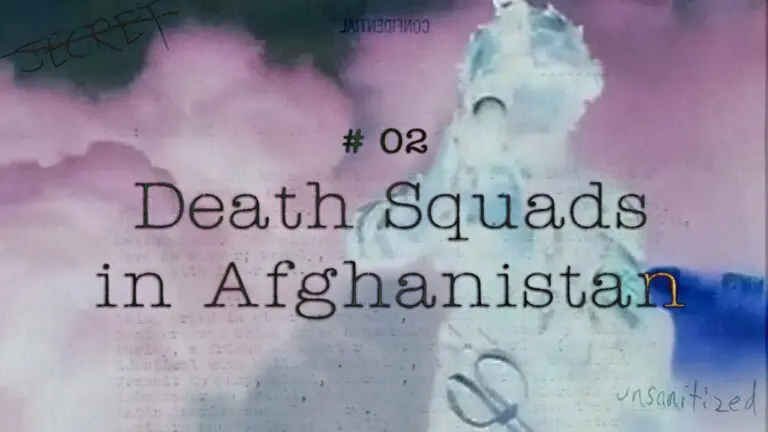
Good interview. Perhaps one of the differences between Obama and during Obama, the special interests did not control the media to the extent it now does. Bezos bought the Washington Post in 2013, Obama’s presidency ended in 2017. Then came the Hillary fiasco….and Russia gate debacle. And of course Trump, the reality show host, who became a financial profit center to the news, especially DNC controlled media. Sometime I see Trump as staged opposition. I find it difficult to see any difference between him and the DNC on fossil fuels and foreign policy. But I have elaborate all that in earlier comments.
Is it not interest that politics drove Kennedy into the arms of the military industrial complex….and religion is no longer discussed as potentially influencing public policy. Try counting the number of Catholics on the Supreme Court. And now we have woke ideology and covid conveniently dividing the U.S.
Regardless, good interview.